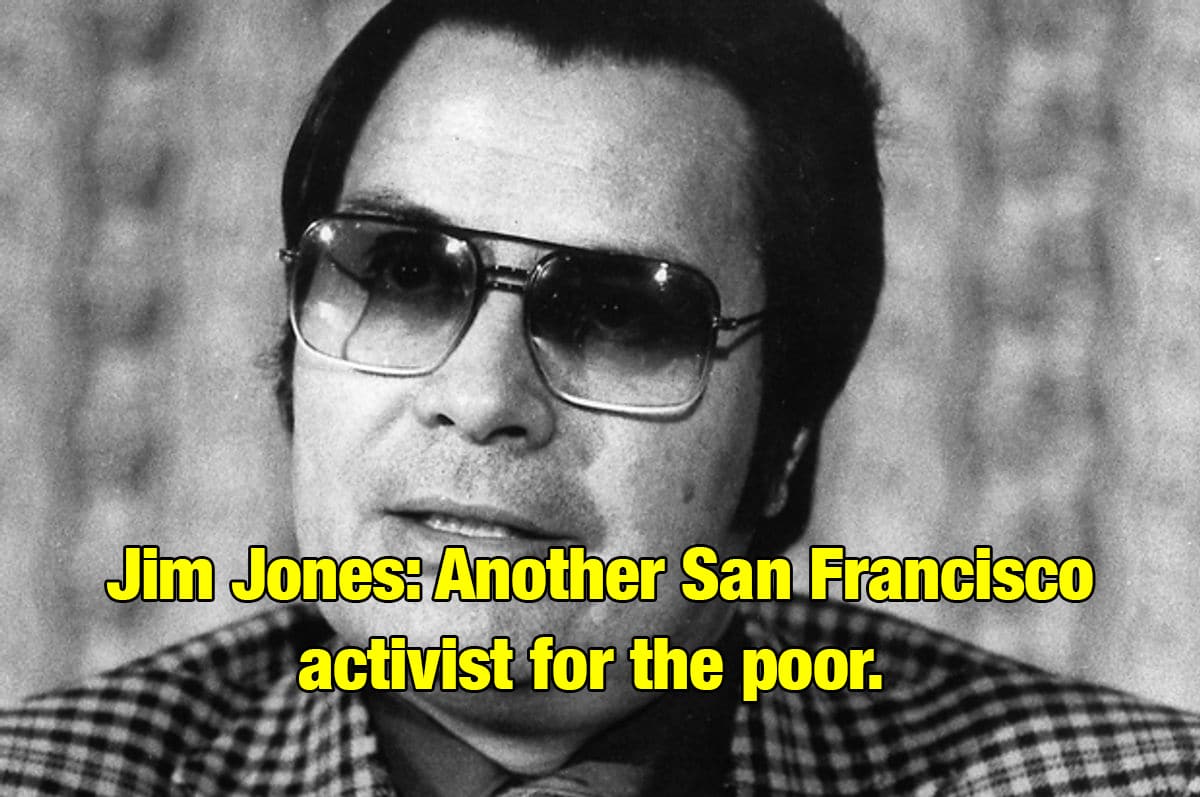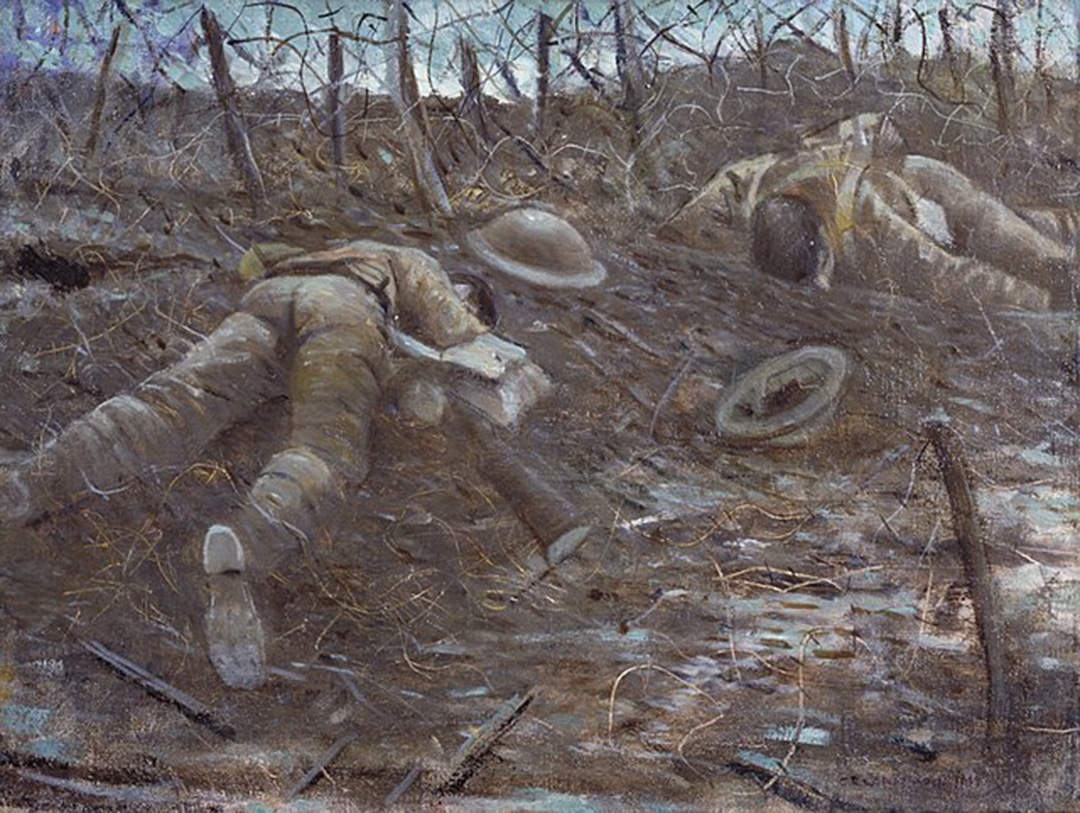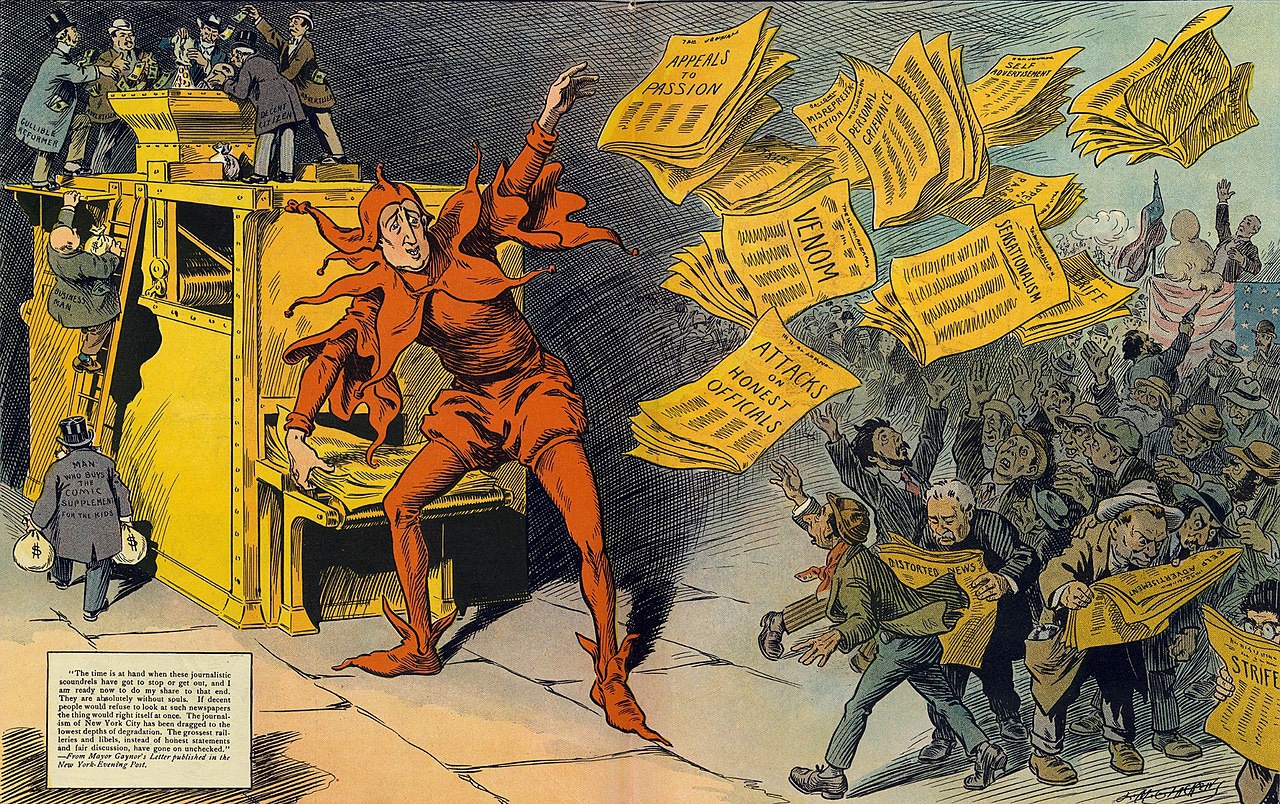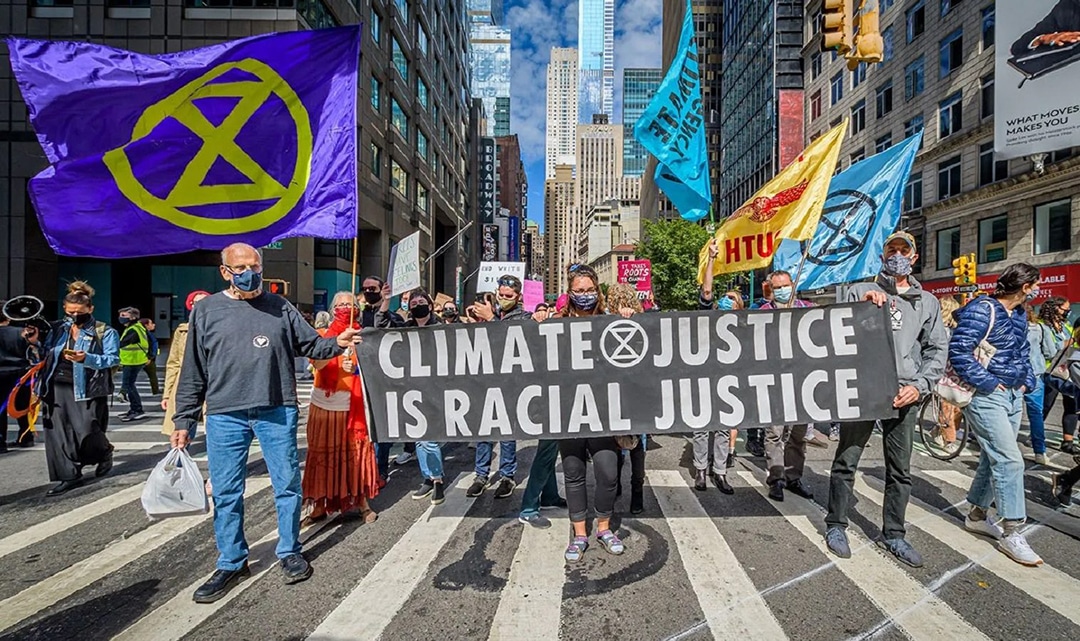

Activism as a Vocation
by Leighton Woodhouse | Aug 1, 2022
San Francisco spends over a billion dollars a year on homelessness. With that much money, the city could get every homeless person off the streets in one fell swoop. And yet, as everyone knows, the opposite is happening: the problem is only getting worse.
It sounds like a paradox, but it’s not a big mystery to most people. My guess is that your average San Franciscan is well aware of the role that the “homelessness industrial complex” — the thick dermis of non-profit organizations and advocacy groups layered between the government and the homeless themselves — plays in perpetuating the problem. In San Francisco, the NGO industry has enormous political clout. Like any rational organization, it uses that clout to steer resources toward itself, both for the practical reasons of meeting payroll and keeping the office rent paid, and for the ideological purpose of enacting its social agenda. Obviously, permanently solving the homelessness problem would put an end to that whole arrangement, and all of the direct support and activist organizations that comprise that apparatus would eventually have to close up shop. That might be ideal from the public’s point of view, but from an organizational standpoint it’s completely irrational.
The topic of this essay is not really San Francisco’s homelessness problem, though. I’m just using it as a particularly clear and familiar example of a broader dynamic in American politics that’s worth thinking about. The political and professional relationships between government officials and activists that this particular example highlights has features that help explain all sorts dysfunctions in American politics and governance today — problems that are only getting worse.
Politicians and activists
Conventionally, the word “politics” describes the process of adversarial bargaining over the competing interests of different constituencies within a given community. In theory, the goal of the activity is to arrive at a working compromise that can serve as the basis for a new rule that, once codified, we all consent to abide by. This is the basic process by which people govern themselves in a democratic society. The people who engage in this process professionally are called “politicians,” or “political consultants,” or “policy advisors,” or some other familiar job title. This is all pretty basic and intuitive.
A little less well-understood, in my opinion, is the role of the political activist. Political activists interact with professional political operatives all the time, but they’re engaged in a different activity and are motivated by a different set of incentives.
Traditionally, politicians (and their various aides and advisors) have been, by and large, brokers of power, not creators of it. The process is familiar to everyone: A given politician is elected by a particular constituency. Through that election, the politician is delegated the collective power of those constituents, which exists in its own right, independently of the politician. The elected politician’s job is to wield that power effectively against that constituency’s opponents in the adversarial bargaining process that we call “politics.”
Activists do something quite different: they don’t just wield power, they create it. They do this by re-shaping the balance of power within a society by changing the public’s perception of what social groups constitute that society.
Activists are basically self-appointed spokespersons. They claim (with varying degrees of credibility) to give voice to the beliefs, values and demands of a given constituency.
Some of those constituencies exist as widely-recognized social groups entirely independently of the activists who purport to speak for them. Historically, many of those groups came into existence as the consequence of social exclusion or oppression. The “black race” was an invention of slavers. There was no such thing as “Native Americans” until European colonists arrived and conceptually transformed the whole teeming mass of warring tribes into a single, collective other. If Foucault’s reading is correct, the “homosexual,” as a social category, was created by psychiatrists and technocrats as an instrument with which to insinuate the state’s administrative power into the personal lives of individuals.
Other constituencies, however, exist as social groups only because of the activists who claim to speak for them.
Social groups
I should be clear what I mean by “social groups.” You can cluster any random assortment of individuals together and call it a “group.” But by “social group,” I mean something more tangible than that. A social group, for the purposes of this piece of writing, is, basically, a group of people that is recognized as such by the general public. “African-Americans” is a social group. So is “the LGBTQ community.” “Catholics,” “environmentalists,” “union members,” “the intelligence community,” “low-skilled workers,” “rural people,” “Wall Street traders,” “Rotary Club members,” “combat veterans” and “the alumni of Wayne State University” are all social groups of varying levels of coherence.
Most of the social groups listed above were not the inventions of activists, but a couple of them were. “Environmentalists” were not a recognized group of people until environmental activists emerged to speak on their behalf. “Union members” didn’t exist until labor organizers (a kind of political activist) helped to cohere a bunch of hitherto politically isolated employees together into a unified collective of workers.
Those two examples are fairly self-evident; others are more obscure. One might think that, like “African-Americans,” “Asian-Americans” was a social group that emerged from exclusion and oppression, prior to the emergence of political activists who spoke in their name. But Asians living in America never thought of themselves as a single collective until only about fifty years ago. To be sure, Chinese-Americans were openly discriminated against by the Chinese Exclusion Act, Japanese-Americans were imprisoned in camps during World War 2, and Filipino-Americans were ruthlessly exploited as farm workers. But as Jay Caspian Kang describes in his book “The Loneliest Americans,” it took a couple of student radicals at UC Berkeley in 1968 to very deliberately bring them together under a unified political identity. (Even today, most Asian-Americans identify much more with their specific Asian ethnicities than with the bureaucratic category of “AAPI.”)
Today, we’re seeing the formation of new social groups by political activists in real time. “Trans people” certainly existed prior to and independent of the new trans activist movement. But, like Asian-Americans a half century ago, they did not tend to identify as a collective group with a common culture, a unified belief system and a clear set of political interests until some highly motivated activists came along and made it so. If you don’t believe me, go ask some Gen X or Boomer “transsexuals” (many of whom still adhere to that now-anachronistic term) who transitioned in their teens or twenties. Some of them certainly subscribe enthusiastically to the new ideology of “gender expansiveness,” but many of them reject it outright. This is not to say that their opinion is right or wrong, just that the new social grouping of “trans people” is still emergent, and as such, is conceptually contested terrain. The resistance of some older trans people to the new gender ideology is really a rejection of the right of this new set of (mostly younger) political activists to speak in their name, and to tell them what they should and should not believe about themselves.
The timing of the emergence of the trans movement in the wake of the total victory of the gay rights movement in the fight for same-sex marriage is no coincidence, as Katie Herzog, Glenn Greenwald and others have observed before me. For decades, as gay Americans were denied their human and civil rights, gay right activists were delegated the collective social power of this persecuted minority. Out of that power, they constructed a massively influential and extremely well-financed apparatus for political engagement and cultural production, one that became ascendant in Hollywood, in corporate America and within the Democratic Party.
Same sex marriage represented the final battle for full legal and social equality by gay Americans as a social group. For those constituents, the right to gay marriage was the ideal resolution of decades of political struggle. But for the professional apparatus itself, it was a mixed blessing. It was a victory, but one that rendered obsolete both the apparatus and the political activists who led it.
Shifting to trans rights was an obvious and rational strategy for long-term organizational survival, continuity and success. But so vast was the gay rights political machine and so small was the trans population that when the former turned its full firepower over to the latter, it changed not just the political fortunes of the “trans community” but the very nature of the community itself. Suddenly, a vast army of battle-scarred, full-time activists were professionally invested in turning the oppression of trans people into the critical social issue of our time. The incentives of their careers were aligned with “organizing” trans people, which is to say, in cohering them into a unified constituency with a specific social creed and a singular political agenda. With the triumph of gay marriage, trans people were fated to become a new, vocal, and highly visible social group, whether they liked it or not. The activists’ careers depended on it.
But no matter how much activists inflate it, trans rights is a small reed upon which to balance the full weight of the professional gay rights movement. So dozens of new social groups continue to materialize to bolster it, each with its own vague set of claims to oppression and demands for liberation: genderqueer, gender non-conforming, non-binary, two-spirit, asexual, etc. As each new social group arises, it endows activists with a new source of social power to tap into by speaking in the new group’s name. In this way, activists shape the world to maximize their own power, rather than the other way around.
The dynamic works in the inverse, too: as gay people have achieved equality, they have become less and less relevant as subjects upon which to build the careers of political activists. With fewer activists out in the public perpetually re-constituting them as an oppressed social group, gay people have already begun to fade into the masses, reduced into mere individuals with sexual preferences, rather than as a collective actor on the stage of world history. Over the coming years, they will become less and less visible as a social group at all. As (gay) Andrew Sullivan says, he’s merely “cisgender” now. That’s the mundane reality of what equality looks like.
Activism as politics
Traditionally, the relationship between politicians and activists fell into a fairly functional dynamic. Activists would speak on behalf of an oppressed minority. By speaking for the members of that group, they helped to further constitute them as a recognized social group, both in their own minds and in those of the public. This recognition fostered political power, both for the social group’s members and for the activists who appointed themselves as the group’s spokespersons. The activists took the political power they generated in the world and wielded it in the field of politics, either by pressuring politicians to bargain on behalf of the oppressed group, or sometimes by becoming politicians themselves. Through this process of generating and deploying political power, activists won tangible benefits for the members of the groups they represented.
A couple of things have happened over time that have warped this process. First, over the course of many decades, activism has become professionalized. Instead of small cadres of fiery agitators, today we have immense bureaucracies of career cause-pursuers who deploy specialized techniques in shaping public opinion and in marketing political issues. As activism has become organized into a trade, activist organizations have formalized, developing their own institutional interests that are separate from those of the constituents and causes they purport to champion. This is an inevitable tendency, first documented by the Italian sociologist Robert Michels over a century ago.
Second, as professional activism has ballooned into an industrial scale social force, it has encroached on the field of professional politics. The traditional definition of politics that I offered above — the process of adversarial bargaining over the competing interests of different constituencies with the aim of achieving a workable compromise — clearly no longer describes what we call “politics” in the United States today. That’s especially so at the national level, where compromise is the exception rather than the rule, and where the priority of passing laws seems at best secondary to the pursuit of influence for its own sake. The Harry Reids and the John Boehners and the Bill Clintons of the past — politicians, that is to say, who measured their effectiveness by their ability to reach a compromise — are now an anachronism. They have been replaced by the AOCs and the Josh Hawleys and the Donald Trumps of today: politicians whose principal concern is achieving and enlarging their social influence by way of purely symbolic, ideological warfare.
Some may call politicians of this style “demagogues,” but they can better be understood as activists, as they’re aligned with the incentives of activism over and above the incentives of traditional politics. With their national profiles and their national fundraising bases, their political influence is drawn less from the delegated authority of the voters in their districts than from the accrued symbolic power of the social groups of whom they have made themselves veritable totems. Rather than being bestowed power by constituents who expect them to use it to win them concrete benefits, they create their own power by forming and reconstituting the social groups in whose name they speak, whether those groups are “marginalized communities” or “patriots” or “forgotten Americans.” They do this every time they do a cable news hit or post a tweet expressing outrage at the injustice of the day. Their professional interests lie not in making deals with their opponents and generating solutions for their voters, but in further polarizing the political field and in rhetorically inflating the problems facing their constituents into existential threats to democracy and civilization. Like San Francisco’s homeless activists, they benefit not when social problems and political conflicts get better, but when they get worse.
The momentum toward conflict and chaos is thus now built into the institutions that we’re supposed to rely on to create comity and order. You can see it in plain view everyday in downtown San Francisco, but its less visible manifestations are everywhere. There’s a logic to why things just keep getting worse. It’s in the interests of people in powerful positions on both the left and the right that they do so, whether they realize it or not.





0 Comments